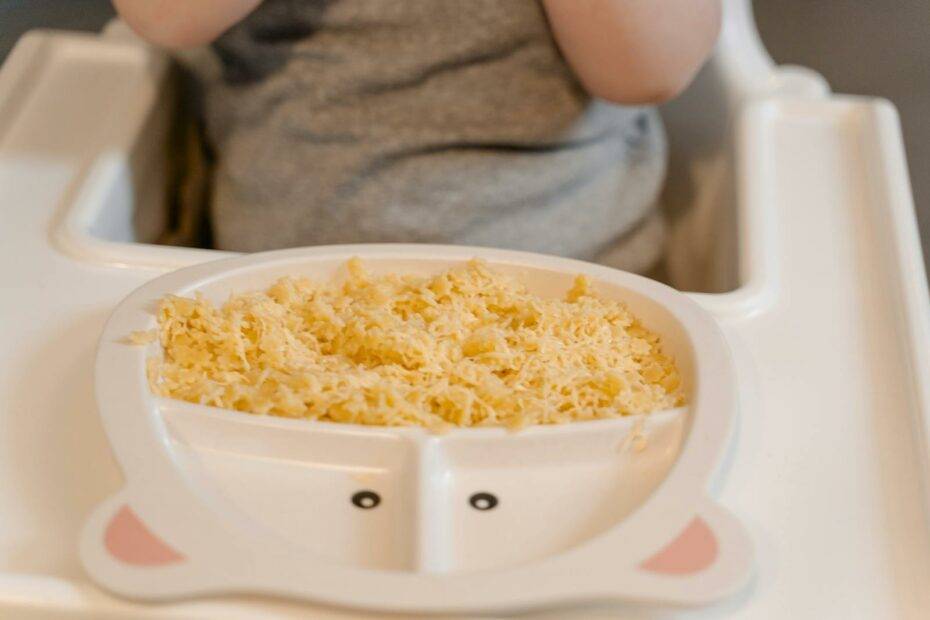Introduction
Starting solids is an exciting milestone in every baby's life. It's a transition from the all-liquid diet of breast milk or formula to the colorful world of purees, textures, and tastes. But as joyful as it is, introducing baby food can be daunting for new parents. In their quest to give their child the best start in life, parents sometimes make mistakes that can impact their child’s nutrition, growth, or relationship with food. The good news? Most of these mistakes are easy to avoid with the right information and a bit of preparation.
In this guide, we’ll cover the top 10 baby food mistakes that parents make and provide simple, actionable tips to help you make the feeding journey smoother and more enjoyable for both you and your little one
1. Starting Solids Too Early or Too Late
Many parents are unsure of when to start introducing solid foods. Starting too early (before 4 months) can increase the risk of choking and digestive issues. On the other hand, waiting too long (after 8 months) may lead to developmental delays in chewing and food acceptance.
Solution: The American Academy of Pediatrics recommends starting solids around 6 months of age. Look for developmental signs of readiness like sitting up with minimal support, showing interest in food, and the disappearance of the tongue-thrust reflex.
2. Relying Too Much on Packaged Baby Food
While convenient, pre-packaged baby foods often contain preservatives, added sugars, or less-than-ideal nutrient levels. Overreliance can also limit a baby's exposure to different textures and flavors.
Solution: Incorporate fresh, homemade options whenever possible. Simple steamed and mashed fruits and vegetables or pureed grains are easy to make and nutrient-dense. If using packaged food, choose options with minimal ingredients and no added sugar or salt.
3. Skipping Iron-Rich Foods
Iron is crucial for a baby’s brain development, especially after 6 months when their natural iron stores start to deplete. Many parents focus solely on fruits and vegetables, unintentionally neglecting iron.
Solution: Include iron-rich foods such as pureed meats, iron-fortified cereals, beans, lentils, and tofu. Pair iron-rich foods with vitamin C sources like oranges or tomatoes to boost absorption.
4. Offering the Same Foods Repeatedly
It's natural to stick with what the baby likes, but repetitive feeding can limit exposure to a variety of nutrients and tastes, potentially leading to picky eating later on.
Solution: Introduce a wide range of foods early on, including different fruits, vegetables, grains, and proteins. Rotate ingredients weekly and experiment with new combinations to build a robust palate.
5. Avoiding Allergenic Foods Unnecessarily
Many parents delay allergenic foods like peanuts, eggs, or dairy due to fear of allergic reactions. However, recent research suggests that delaying these foods may actually increase allergy risks.
Solution: Introduce allergenic foods gradually and one at a time after starting solids, ideally between 6-12 months, unless advised otherwise by a pediatrician. Always monitor for reactions and start with small amounts.
6. Not Respecting the Baby’s Appetite
Forcing a baby to eat when they're not hungry or stopping them too early can interfere with their natural hunger cues, potentially leading to unhealthy eating habits later.
Solution: Watch your baby for signs of hunger and fullness. Let them guide the pace of eating and respect when they turn their head, close their mouth, or push food away.
7. Using Food as a Reward or Distraction
Offering treats for good behavior or using food to stop crying can create emotional associations with eating, setting the stage for emotional eating in the future.
Solution: Use praise and attention, not food, to reward behavior. If your baby is upset, first try to understand the cause before offering food as comfort.
8. Ignoring Food Texture Progression
Keeping a baby on purees for too long can delay their ability to chew and explore new textures, which is essential for speech and oral development.
Solution: Start with smooth purees but gradually move to mashed, soft chunks, and finger foods as your baby shows readiness. By around 9-10 months, many babies can handle soft table foods.
9. Neglecting Safety and Hygiene
Baby food must be prepared and stored safely to prevent illness. Some parents overlook basic hygiene like washing hands, sterilizing utensils, or checking expiration dates.
Solution: Always wash hands before preparing food. Store leftovers properly in airtight containers and label them with dates. Avoid honey (not safe before 1 year) and ensure all meats and eggs are fully cooked.
10. Stressing Too Much Over Perfection
Parents often put pressure on themselves to feed their baby perfectly, leading to stress and anxiety. Feeding should be a bonding and enjoyable experience, not a battleground.
Solution: Focus on progress, not perfection. Babies are intuitive eaters. Offer healthy options, be patient, and create a positive mealtime environment. A missed meal or disliked food is not the end of the world.
Conclusion
Feeding your baby is a journey filled with exploration, learning, and love. Mistakes will happen—and that’s okay. By staying informed and observing your baby’s cues, you can avoid common pitfalls and nurture a healthy relationship with food from the very start. Every bite is a step toward growth, and every mealtime is a moment to connect.
Remember: Trust your instincts, stay flexible, and enjoy the messy, magical ride of baby feeding!
